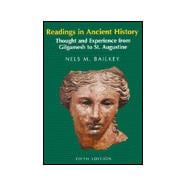| Near Eastern Civilizations | 1 | (124) | |||
|
4 | (9) | |||
|
13 | (4) | |||
|
17 | (4) | |||
|
21 | (3) | |||
|
24 | (2) | |||
|
26 | (4) | |||
|
30 | (8) | |||
|
38 | (5) | |||
|
43 | (3) | |||
|
46 | (3) | |||
|
49 | (4) | |||
|
53 | (3) | |||
|
56 | (3) | |||
|
59 | (4) | |||
|
63 | (2) | |||
|
65 | (5) | |||
|
70 | (50) | |||
|
71 | (4) | |||
|
75 | (3) | |||
|
78 | (3) | |||
|
81 | (5) | |||
|
86 | (4) | |||
|
90 | (2) | |||
|
92 | (6) | |||
|
98 | (5) | |||
|
103 | (5) | |||
|
108 | (3) | |||
|
111 | (3) | |||
|
114 | (4) | |||
|
118 | (2) | |||
|
120 | (5) | |||
|
123 | (2) | |||
| Greek Civilization | 125 | (194) | |||
|
128 | (17) | |||
|
145 | (6) | |||
|
151 | (8) | |||
|
152 | (1) | |||
|
153 | (1) | |||
|
154 | (1) | |||
|
155 | (2) | |||
|
157 | (2) | |||
|
159 | (6) | |||
|
165 | (3) | |||
|
168 | (9) | |||
|
177 | (8) | |||
|
185 | (15) | |||
|
200 | (3) | |||
|
203 | (6) | |||
|
209 | (5) | |||
|
214 | (19) | |||
|
215 | (3) | |||
|
218 | (3) | |||
|
221 | (5) | |||
|
226 | (7) | |||
|
233 | (9) | |||
|
242 | (10) | |||
|
244 | (2) | |||
|
246 | (6) | |||
|
252 | (8) | |||
|
254 | (4) | |||
|
258 | (2) | |||
|
260 | (24) | |||
|
260 | (11) | |||
|
261 | (2) | |||
|
263 | (1) | |||
|
264 | (2) | |||
|
266 | (1) | |||
|
267 | (2) | |||
|
269 | (2) | |||
|
271 | (13) | |||
|
271 | (2) | |||
|
273 | (2) | |||
|
275 | (1) | |||
|
276 | (1) | |||
|
277 | (2) | |||
|
279 | (2) | |||
|
281 | (1) | |||
|
282 | (2) | |||
|
284 | (12) | |||
|
285 | (3) | |||
|
288 | (5) | |||
|
293 | (3) | |||
|
296 | (7) | |||
|
303 | (3) | |||
|
306 | (7) | |||
|
307 | (2) | |||
|
309 | (4) | |||
|
313 | (6) | |||
|
316 | (3) | |||
| Roman Civilization | 319 | (208) | |||
|
322 | (10) | |||
|
323 | (2) | |||
|
325 | (5) | |||
|
330 | (2) | |||
|
332 | (6) | |||
|
338 | (5) | |||
|
343 | (5) | |||
|
348 | (8) | |||
|
356 | (7) | |||
|
363 | (7) | |||
|
370 | (10) | |||
|
380 | (5) | |||
|
385 | (17) | |||
|
386 | (6) | |||
|
392 | (4) | |||
|
396 | (6) | |||
|
402 | (4) | |||
|
406 | (9) | |||
|
415 | (12) | |||
|
415 | (8) | |||
|
423 | (4) | |||
|
427 | (11) | |||
|
438 | (4) | |||
|
438 | (2) | |||
|
440 | (2) | |||
|
442 | (13) | |||
|
442 | (9) | |||
|
451 | (4) | |||
|
452 | (1) | |||
|
453 | (2) | |||
|
455 | (3) | |||
|
458 | (4) | |||
|
462 | (3) | |||
|
465 | (22) | |||
|
466 | (12) | |||
|
466 | (4) | |||
|
470 | (3) | |||
|
473 | (5) | |||
|
478 | (9) | |||
|
478 | (2) | |||
|
480 | (7) | |||
|
487 | (15) | |||
|
488 | (1) | |||
|
489 | (1) | |||
|
490 | (12) | |||
|
502 | (10) | |||
|
502 | (2) | |||
|
504 | (8) | |||
|
512 | (5) | |||
|
513 | (2) | |||
|
515 | (2) | |||
|
517 | (7) | |||
|
524 | (3) | |||
|
524 | (2) | |||
|
526 | (1) | |||
| Selected Background Reading | 527 |








